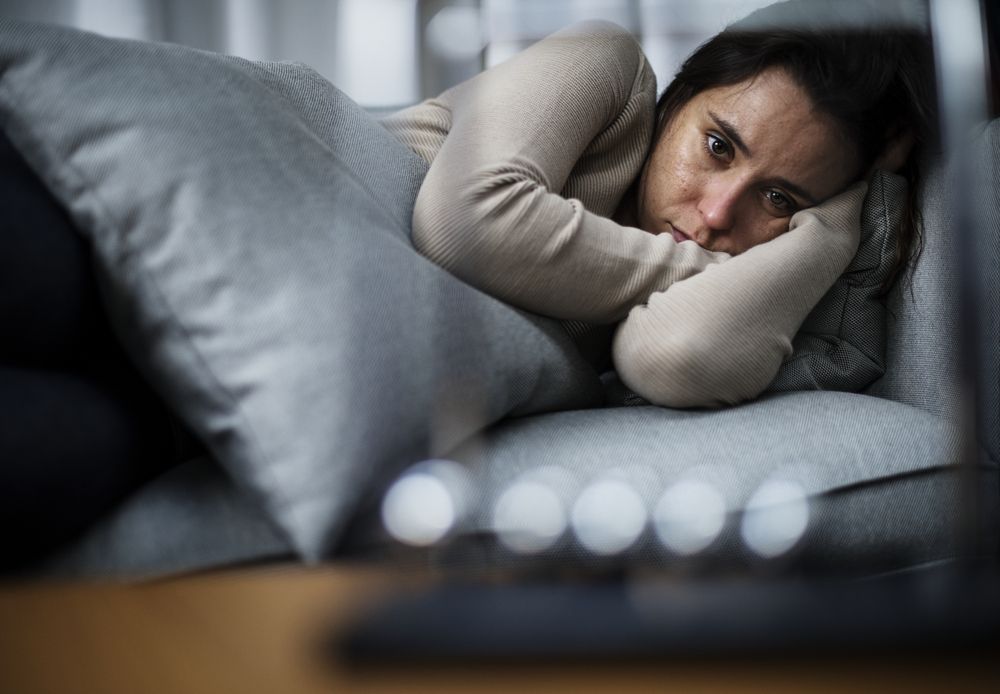Benzodiazepines are a class of psychoactive drugs used to treat seizures, anxiety, muscle tension, sleep problems, and other conditions. They are sometimes used to treat panic attacks.
Overdosing on benzodiazepines is rarely fatal, but these drugs can cause fairly severe physical dependence and addiction after even short-term use. They should only be used as prescribed. (Learn More — What Are Benzodiazepines?)
Benzodiazepine abuse can increase your risk of experiencing the drug’s side effects and may cause a host of other issues. One of the most serious potential problems is developing a strong physical dependence on and addiction to the drug. Addiction seriously damage your health, your relationships, and virtually every other area of your life. (Learn More — Benzodiazepine Abuse)
People abuse benzodiazepines for different reasons. Since benzodiazepine overdose rarely causes death, some people think it’s “safe” to abuse these drugs. They are legally prescribed for a variety of legitimate issues, so they are widely available. Once a person chooses to abuse them, they can quickly become addicted, which makes it extremely hard to quit. (Learn More — Why Do People Abuse Benzodiazepines?)
While exact statistics are difficult to determine, the five most commonly prescribed benzodiazepines are Xanax, Valium, Ativan, Restoril, and Klonopin, according to the DEA. It is no surprise, then, that they are also the most frequently abused benzos. The rate of abuse is particularly high among younger people, and tapers off with older demographics. (Learn More — Commonly Abused Benzodiazepines)
Overcoming addiction is not easy, especially when the drug in question causes severe physical dependence. You will likely need to find a rehabilitation center to walk you through the best method for beating your addiction.
There are alternative medications that can be used to treat the same issues addressed by benzodiazepines. Some of these alternatives have a lower potential for abuse. (Learn More — Overcoming Addiction)
What Are Benzodiazepines?
Benzodiazepines (often called benzos) are a class of psychoactive drug used to treat a variety of conditions, including seizures, anxiety, muscle tension, sleep problems, and other issues. Some of their uses have been controversial, such as prescribing them for panic attacks, but evidence suggests they can be effective in treating them, at least in the short-term.
Benzodiazepines work by enhancing the effect of the neurotransmitter GABA, a tranquilizing chemical messenger. These types of transmitters are responsible for slowing down activity in the brain and reducing anxiety.
Unless it is mixed with other drugs, benzodiazepine overdose is rarely fatal.
You should only take benzodiazepines as prescribed, and they are usually only recommended for short-term use due to their high potential for dependence and abuse. If you wish to stop taking benzodiazepines, talk to your doctor. If you suddenly stop taking them rather than tapering your dose, it can lead to life-threatening withdrawal symptoms.
Unfortunately, people are increasingly abusing benzodiazepines, which can lead to physical dependence and addiction. Users may seek to enhance the calming effect of the drug through abuse, but benzodiazepine abuse can lead to dangerous levels of depression and even suicidal thoughts.
Even if you use benzodiazepine as recommended, it can sometimes cause depression, especially in young people. Report any suicidal thoughts to your doctor right away. It is important you get help as soon as possible, and it is likely your medication will be changed.
Benzodiazepine Abuse
You should only use benzodiazepines as prescribed to avoid any risk of addiction or serious side effects. While it is true that abusing benzodiazepines is unlikely to be fatal, it can still reduce your quality of life and more readily expose you to common side effects associated with this drug class. Side effects include:
- Confusion
- Dizziness
- Trembling
- Vision problems
- Drowsiness
- Headache
- Depression

It can be difficult to admit you have lost control of your drug use, but it is important to acknowledge signs of a problem. Drug abuse can wear away at your quality of life and physical health. It is often expensive to abuse drugs, and your body is not equipped to handle the chemical overload.
Signs you may be suffering from benzodiazepine addiction include:
- An inability to stop taking benzodiazepines. Many people believe they could stop if they wanted to, but this is often not true. While it is possible to overcome addiction, it usually requires professional help.
- Feeling like you could not function without benzodiazepines or your quality of life would plummet if you stopped taking them.
- A greater tolerance for benzodiazepines, requiring more to achieve the same effect. This can happen with prescribed use, but the progression will be slower and your doctor can help you adjust as needed.
- Withdrawal symptoms if you try to stop taking the drug or reduce your dose.
Why Do People Abuse Benzodiazepines?
A few factors may play into the rise of benzodiazepine abuse.
Benzodiazepines are widely available. This means people who want to abuse them can usually get them fairly easily. They may get pills from friends or family members with legitimate prescriptions, or they may buy them from dealers.
Drug abuse triggers issues with long-term decision-making skills. Even though a drug can make the user feel good in the moment, it can be difficult to grasp the level of potential damage it can cause down the line. This is compounded by the fact that it’s unlikely for benzodiazepine overdose to be fatal, making people falsely believe that the consequences of abuse are not that detrimental.
Commonly Abused Benzodiazepines
Two drugs in the benzodiazepine class that are commonly abused are alprazolam (Xanax) and diazepam (Valium). While many other benzodiazepines have similar properties and abuse potential, these two tend to be the most widely abused.
 In 2018, it was reported that abuse of benzodiazepines among younger people was approaching rates seen with regular prescribed use. One report stated that there was not enough data on older users, the demographic that is most often prescribed benzodiazepines, to determine their rate of abuse.
In 2018, it was reported that abuse of benzodiazepines among younger people was approaching rates seen with regular prescribed use. One report stated that there was not enough data on older users, the demographic that is most often prescribed benzodiazepines, to determine their rate of abuse.
A group of investigators discovered that benzodiazepine abuse seems to fall sharply with age. Younger people are the most likely group to abuse these drugs by far. This is partially attributed to the misconception that prescription drugs, even when abused, are inherently safer than illicit drugs.
The rate of abuse associated with specific benzodiazepines is difficult to determine, but it is likely the drugs most commonly prescribed (Xanax, Valium, Ativan, Restoril, and Klonopin) are the most likely to be abused since they are readily available.
Overcoming Addiction
When overcoming an addiction to benzodiazepines, a person has to withdraw from their physical dependence on the drug. Benzodiazepines create a strong physical dependence, so it’s not safe to stop taking them suddenly.
Instead, a doctor must slowly taper you off your benzo of choice. This means they will gradually reduce your dosage over a period of weeks or months. Your body will become accustomed to the gradually decreasing levels of the drug, until you can eventually stop taking it altogether.
To overcome a benzodiazepine addiction, it’s best if you work with a doctor who specializes in drug addiction. The Substance Abuse and Mental Health Services Administration offers a variety of services to find counselors and rehab centers, as well as an anonymous helpline that can be reached at 1-800-662-4357.
As part of the withdrawal process, it is likely you will be put on diazepam (Valium) to replace whatever other drug you were on. This is because diazepam is long-acting, whereas other benzodiazepines that are commonly abused are short-acting. You’ll then be tapered off diazepam, which allows for a smoother process.
This tapered approach to detox avoids severe withdrawal symptoms. If you experience strong symptoms, your doctor will likely raise your dose for a period of time and taper you on a slower schedule.
While working through withdrawal is key to the recovery process, it’s not enough to just break your physical dependence on Xanax, Valium, or other benzodiazepines. You must address the core causes of your substance abuse, which are best addressed with therapy.
Antidepressants and other drugs can often be used to replace benzodiazepines in treating the same conditions. The SSRI Zoloft is one such example.
Another example is buspirone (BuSpar), which works similarly to benzodiazepines. BuSpar can take longer to work, and is often less effective, but it causes less dependence.
References
Diazepam. (July 15, 2019). MedlinePlus.
Alprazolam. (September 15, 2017). MedlinePlus.
The Role of High-Potency Benzodiazepines in the Treatment of Panic Disorder. (2005). The Primary Care Companion for CNS Disorders.
Benzodiazepine Addiction. UCLA Jane & Terry Semel Institute for Neuroscience & Human Behavior.
The Benefits and Risks of Benzodiazepines. (March 7, 2019). Medical News Today.
Evidence Shows Abuse of Xanax, Valium on the Rise. (December 27, 2018). WebMD.
Benzodiazepines. (July 2019). Drug Enforcement Agency.
SAMHSA’s National Helpline. Substance Abuse and Mental Health Services Administration (SAMHSA).
Benzodiazepine Withdrawal Management. (SA Health).
Benzodiazepines (and the Alternatives). (March 15, 2019). Harvard Health.


